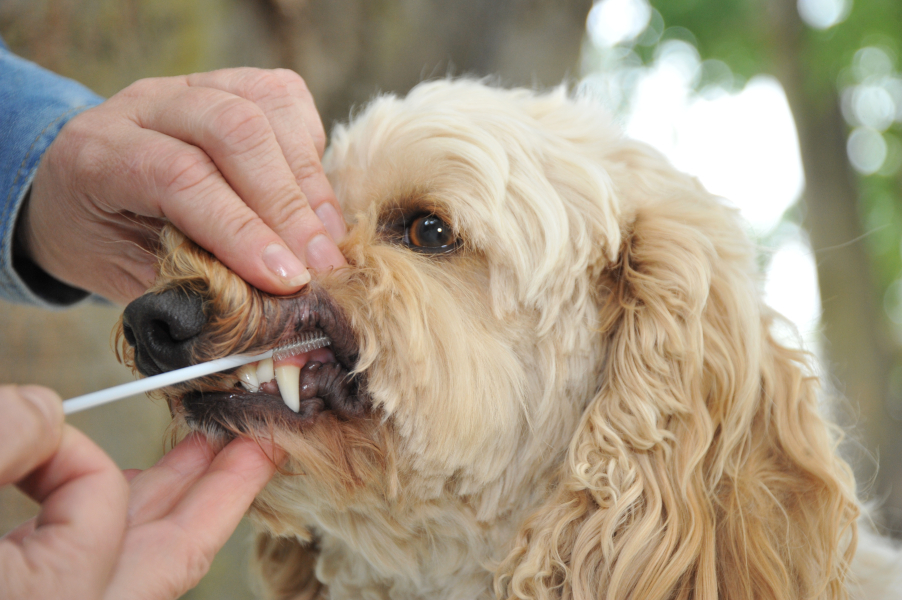Quick Summary
Click here for Price and Turnaround Time
Phenotype: Affected puppies typically display seizures, hypermetria (exaggerated gait), and abnormal behaviors, such as episodes of vocalization, within the first 10 weeks of age.
Mode of Inheritance: Autosomal recessive
Alleles: N = Normal, SE = Saluki encephalopathy
Breeds appropriate for testing: Saluki
Explanation of results:
• Dogs with N/N genotype will not have this inherited form of neurological disorder and cannot transmit this allele to their offspring.
• Dogs with N/SE genotype will not be affected by this inherited form of neurological disorder but are carriers. They may transmit this allele to 50% of their offspring. Matings between two carriers are predicted to produce 25% of affected puppies.
• Dogs with SE/SE genotype are expected to develop this form of neurological disorder and will transmit this allele to all of their offspring.
Sample Collection
Dog DNA tests are carried out using cells brushed from your dog's cheeks and gums. The preferred cytology brushes are sent to you by mail, or you may provide your own brushes. For accepted alternative brushes, click here
We recommend waiting until puppies are at least three weeks old before testing.

Step-By-Step:
- Make sure the dog has not had anything to eat or drink for at least 1 hour prior to collecting sample.
- When swabbing puppies, isolate each puppy from the mother, littermates and any shared toys for 1 hour prior to swabbing. Puppies should not have nursed or eaten for 1 hour prior to collecting sample.
- If collecting samples from more than one dog, make sure to sample one dog at a time and wash your hands before swabbing another dog.
- Label brush sleeve with name or ID of dog to be sampled.
- Open brush sleeve by arrow and remove one brush by its handle.
- Place bristle head between the dog’s gums and cheek and press lightly on the outside of the cheek while rubbing or rotating the brush back and forth for 15 seconds.
- Wave the brush in the air for 20 seconds to air dry.
- Insert brush back into sleeve.
- Repeat steps 5 - 8 for each unused brush in sleeve on a fresh area of cheek and gums. Make sure to use and return all brushes sent by the VGL. In most cases, it will be 3 brushes per dog. If using interdental gum brushes, please note that the VGL requires 4 brushes per dog and only moderate or wide interdental gum brushes are accepted.
- Do not seal brushes in sleeve.
- Place all samples in an envelope and return to the address provided.
ATTENTION:
- Do not collect saliva/drool – the key to obtaining a good sample is getting cheek cells on the swab
- Do not rub swab on the dog’s tongue or teeth – this will result in poor quality sample
- Do not collect a sample from a puppy that has recently nursed – the mother’s genetic material can rub off on the puppy’s mouth and contaminate the sample
Saluki encephalopathy (SE) is a heritable neurological disorder that is characterized by seizures, exaggerated gait (hypermetria) and abnormal behaviors, such as episodic vocalizations, beginning within the first 10 weeks of life. The condition is known as canine succinic semialdehyde dehydrogenase deficiency (SSADHD) or central nervous system status spongiosus in Saluki dogs (SSSD) and is caused by a missense genetic variant (c.866G>A; p.Gly288Asp) in the aldehyde dehydrogenase 5 family member A1 (ALDH5A1) gene. SSADHD is also seen in humans, although Saluki dogs appear to have more severe clinical signs than those seen in people affected by this disorder.
Saluki encephalopathy is inherited in an autosomal recessive manner, meaning that two copies of the allele (SE) are necessary for a dog to be affected. Dogs with one copy of SE are carriers; they will be normal but can pass on this allele to their puppies. Affected puppies typically display seizures, hypermetria (exaggerated gait), abnormalities of sleep, and abnormal behaviors, such as episodes of vocalization, within the first 10 weeks of age.
Testing recommendations: Testing for SE assists owners and breeders in identifying affected and carrier dogs. Breeders can use results from the test as a tool for selection of mating pairs to avoid producing dogs affected by this neurological disorder.

 Saluki Encephalopathy (SE)
Saluki Encephalopathy (SE)

